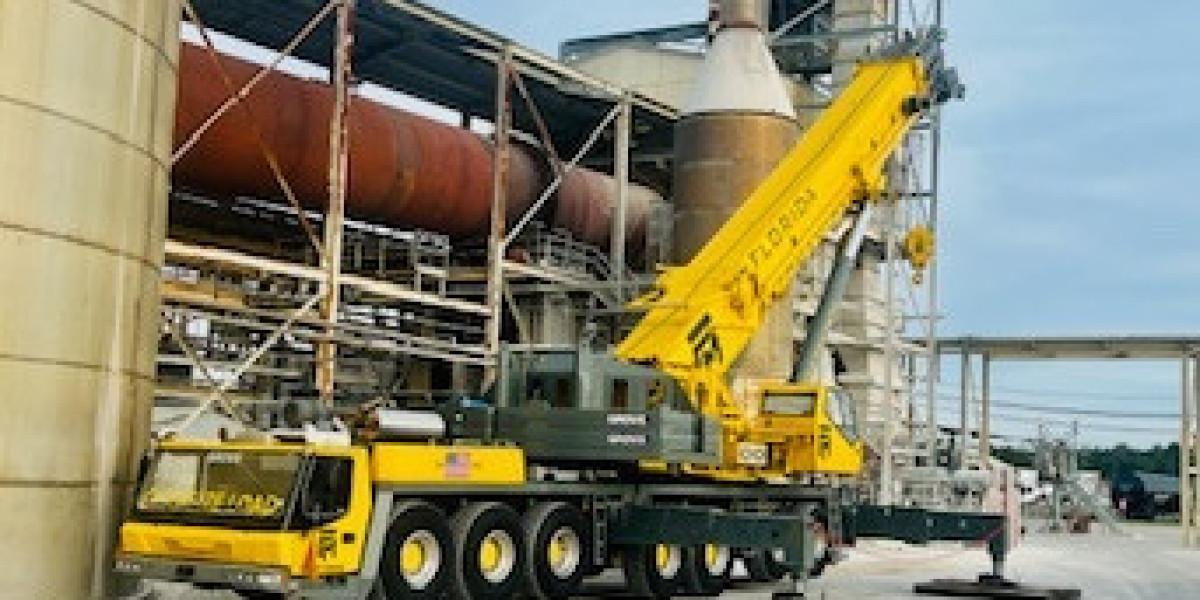Whether you're building a driveway in Dahlonega, clearing land outside Macon, or managing a commercial project in Atlanta, there's one thing you’ll probably need at some point: heavy equipment. And unless you already own a fleet of machinery (and have somewhere to park it), you're likely better off renting.
In Georgia, renting heavy equipment has become a go-to solution for everyone from seasoned contractors to weekend warriors tackling their first big outdoor project. Why? It’s cost-effective, flexible, and — when done right — pretty simple.
Let’s talk about how heavy equipment rental works in Georgia, what kind of gear you can rent, how much it might cost, and what to look out for before you sign that rental agreement.
Why Renting Beats Buying (Most of the Time)
Owning your own equipment sounds great… until you factor in the price tag, storage, maintenance, insurance, and transport. A brand-new excavator, for example, can run you six figures. Even used, you're still making a serious investment.
For most people — even contractors — renting just makes more sense:
- You get the right machine for the right job
- No long-term maintenance or repair costs
- You’re not stuck storing equipment during the off-season
- Access to newer, well-maintained machines
- Freedom to scale up or down depending on the project
And in Georgia, where jobs vary from the red clay hills of the north to the flat farmland of the south, flexibility is everything.
What Kind of Heavy Equipment Can You Rent in Georgia?
If it moves dirt, lifts heavy stuff, or clears land, you can probably rent it. Georgia rental yards are well-stocked with all kinds of machinery — for both residential and commercial projects.
Here’s a rundown of the most commonly rented equipment:
? Excavators
Perfect for digging foundations, trenches, or removing stumps. Available in mini (compact) and full-size versions.
? Skid Steers & Track Loaders
Great for grading, digging, and moving materials in tight spaces. Track models work better on soft or muddy ground.
? Backhoes
A solid all-around machine for digging and loading. Kind of the Swiss army knife of construction equipment.
? Bulldozers
Need to clear land or move a lot of dirt? A dozer’s your best friend, especially if you’re working on uneven terrain.
? Forklifts & Telehandlers
Popular for warehouse work, lifting pallets, or construction sites where you need to lift heavy loads up high.
? Tractors & Attachments
In rural areas, tractors are often used for everything from bush hogging to tilling and grading.
? Compactors & Rollers
For compacting soil, gravel, or asphalt — common in driveway, parking lot, or foundation prep.
? Brush Cutters & Forestry Equipment
Essential if you're clearing land in Georgia’s more wooded regions — especially around North Georgia and the Piedmont area.
How Much Does Heavy Equipment Rental Cost in Georgia?
Prices vary depending on the type of equipment, rental duration, and your location. Urban areas like Atlanta may have slightly higher rates than smaller towns, but you can still find competitive pricing statewide.
Here’s a rough idea of what you might expect:
Equipment | Daily | Weekly | Monthly |
Mini Excavator | $200–$400 | $900–$1,200 | $2,500–$3,500 |
Skid Steer | $150–$300 | $800–$1,000 | $2,000–$3,000 |
Bulldozer | $400–$900 | $1,500–$3,000 | $4,000–$7,000 |
Telehandler | $250–$500 | $1,000–$1,800 | $3,000–$4,500 |
Add-ons like delivery, fuel, damage waivers, or operator services can add to the total. Some rental companies also offer package pricing if you're renting multiple pieces at once or need equipment for an extended job.
? Pro tip: Always ask for a complete quote — and read the fine print so you know what’s included (and what’s not).
Renting in Georgia: Local Tips to Make It Easy
Every state has its quirks, and Georgia is no exception. Whether you're working in the city or way out in the country, here are a few local insights to keep in mind:
1. Know Your Soil
That famous Georgia red clay? It’s tough. If you're digging in it, you’ll want something with enough power and the right attachments. Track loaders tend to perform better than wheeled models on clay-heavy soil, especially when it’s wet.
2. Check Access and Clearance
In older parts of towns like Savannah or Athens, tight spaces, tree coverage, or narrow driveways can make maneuvering tricky. Be sure to measure access points and let the rental company know if space is limited.
3. Permits May Be Required
If you're working on a large-scale commercial project or on public land, you may need permits for equipment operation or delivery. Check with your local city or county office.
4. Ask About Delivery
Most rental companies in Georgia will deliver to your job site — often for a fee. If you don’t have a trailer big enough (or a truck that can tow), this can save you a lot of hassle.
What to Ask Before You Rent
Before you sign anything or pay a deposit, here are a few questions worth asking:
- Is the machine available for my full timeline?
- What’s included in the rental (attachments, fuel, delivery)?
- What happens if it breaks down on the job?
- What kind of insurance or damage waiver is required?
- Can someone show me how to operate it if I’ve never used one before?
A good rental company won’t just hand you the keys and disappear — they’ll walk you through the machine, make sure it’s the right fit, and help you avoid rookie mistakes.
Heavy equipment rental in Georgia doesn’t have to be complicated — especially when you’re working with people who know the land, the tools, and the kinds of jobs folks around here are doing every day.
Whether you’re building a house in the Atlanta suburbs, clearing land near Albany, or putting in a new road in rural South Georgia, renting gives you the power to get the job done without the overhead of ownership.
The key? Plan ahead. Know what you need. And work with a rental team that’s honest, helpful, and knows the local terrain.
With the right machine and a little know-how, you’ll be surprised at what you can accomplish








